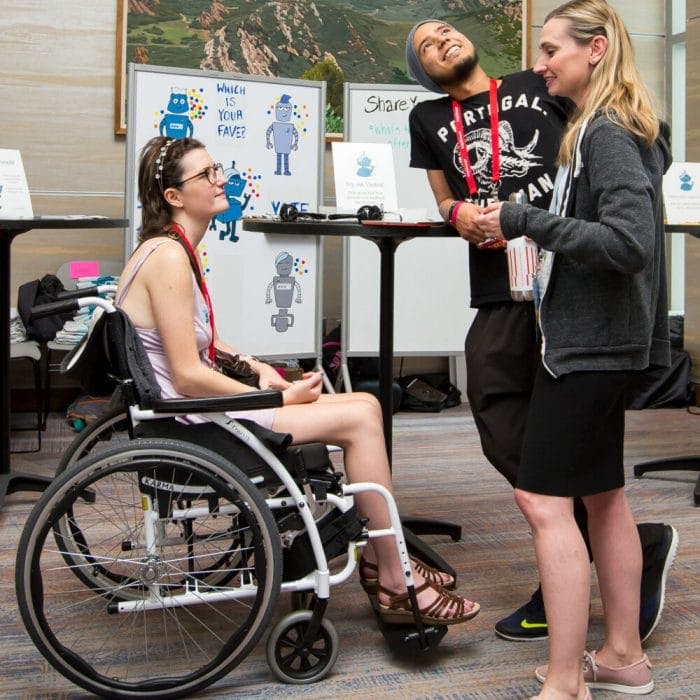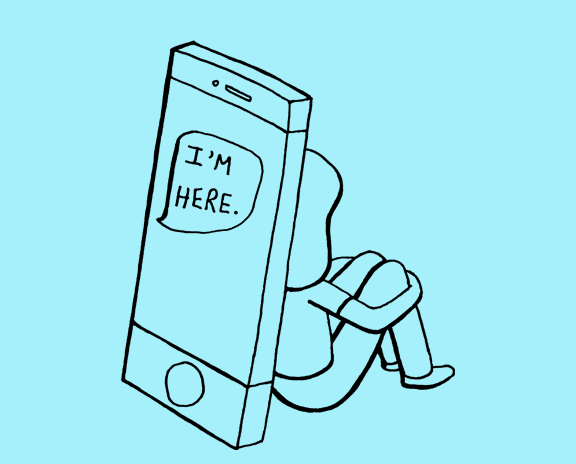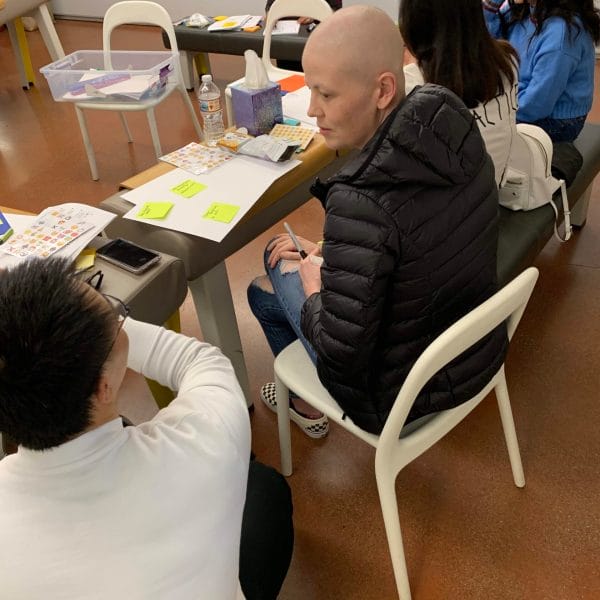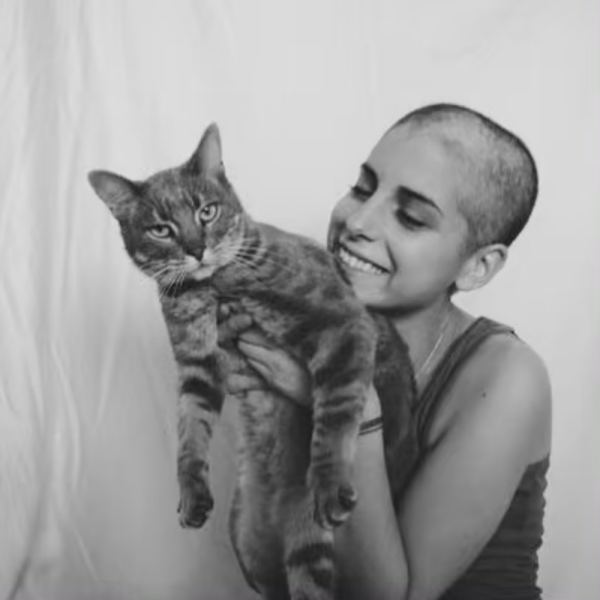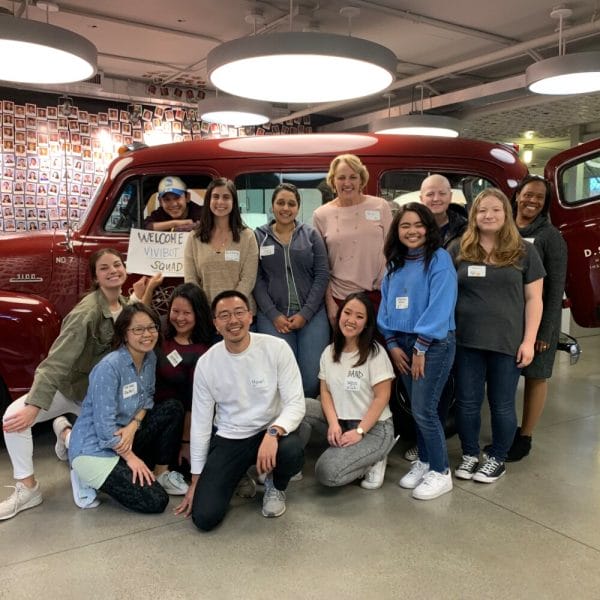Confession: I started this post in April. So, now that’s it July, I feel like I should take a crack at sharing with you the experience I had CancerCon this year because it, like all other years, was a truly powerful one. And there’s also a lot of cool news to share about our chatbot, Vivibot, and I don’t want you to miss out on that either. So, I’ll power through some of the emotions this brings up for me and write on…
After a long delay at SFO and a rough landing, I’m glad to touch down in Denver. In some ways it feels very routine to make this trip again this year, but certainly nothing is routine about the weekend we’re about to spend with the young adult cancer community. This will be my third year at this conference and yet, I always have to prep myself for all the raw emotions I’m about to feel, for all of the connections I’m going to witness, for all of the tears — happy and sad (waterproof mascara is a must), but mostly for all of the generosity I’m about to experience. Never before have I ever been in the presence of such a giving community, willing to share their experience with us mainly because they believe in doing so, they might make another person’s cancer experience a little bit better. That’s a big reason why Hopelab will be here this weekend, to talk to the experts to see if we’re on the right track with Vivibot.
It’s hard to believe that a mere 12 months has passed since last year when we were building a rough prototype of a chatbot based on feedback we received at a co-creation design session at CancerCon in 2017. This year, we’re excited to share the beta version of Vivibot, a chatbot developed for cancer patients who are in their first two years off-treatment. Over the course of the past year we’ve interviewed medical and psychological experts, held several collaborative design sessions at hospitals across the country, spoken to AYA advocacy orgs, and of course, engaged our amazing AYA council. These interviews and design sessions helped us to identify three major psychosocial factors at play with the AYA cancer demographic. If that’s you – one (or all of these) might really ring true.
Little-to-no Energy or Sense of Support – Many AYAs feel like they’re different people than they were before treatment. Dealing with fatigue and other hardships, it can often be a struggle to build a post-cancer identity and reintegrate into their former lives as well as communicate these hardships to friends and family.
Uncertain Sense of the Future – Many AYAs don’t want to get their hopes up about long-term survival; some even feel guilty for surviving treatment. Other AYAs express a desire to live in the present moment rather than rely on a future that may never come to pass.
Desire to Listen to Others and Help Through Sharing – Several young people we talked to expressed a desire to normalize their cancer experience by hearing others’ stories. Not ‘sob-stories from attention seekers’ but real examples of specific cancer-related challenges.
I’m eager to see how the beta product resonates with people who have never heard of it before and also curious to see what people are going to think of the progress we’ve made since last year. I check in to the hotel and go upstairs to get my badge and drop off a bunch of things at our booth space. Across the long hallway, I hear someone call my name. I don’t see anyone I recognize, they must be looking for another Robin. I keep walking and hear my name again, this time louder, and now I see a young man waving at me with a smirk on his face. As I approach him, he smiles a big smile and says, “Robin, you don’t recognize me?”
I drop everything I am carrying (which is a lot of stuff) and reach out for a big hug. “I didn’t recognize you,” I whisper. “You look so…” I can’t even complete my sentence because the tears come but I don’t want Martin to know that I’m crying. Martin is a member of our AYA council, one of the people instrumental in the creation of Vivibot. He is featured in many of the videos in the bot, he helped create the voice and personality of Vivibot, his personality is really at the core of this product. It’s been eight months since I last saw him and he looks dramatically different. He looks healthy. And there are tears streaming down my face. And this hug could go on forever and I’d literally be ok with that. “Are you crying?” Busted. I have literally been here for five minutes and I’m already crying. So much for the mascara application this morning.
“Please don’t cry,” Martin says to me. He’s doing well, he’s happy, he’s healthy. I wipe my eyes and pull myself together and tell Martin excitedly about all of the progress we’ve made on Vivibot over the past eight months and what we hope to accomplish at CancerCon. He’s excited to see how it works and promises to bring his friends over to our booth.
The weekend is a whirlwind of Vivibot demos, dot voting on Vivibot characters, and getting honest reactions from cancer patients and survivors about what they think about the product. Overall, the feedback is positive. Jennifer, age 23 said, “I liked expressing myself to something non-judgemental, who could also talk back to them in kind words.” And Skyler, age 23 said, “I can see this being a good option for kids or teens going through chemo to get a laugh out of their situation.”
Looking back at this experience three months later I see one specific theme pop up – as it does quite often with this project – and that’s this notion of resilience. We built Vivibot to help reduce stress and anxiety in cancer survivors but to also measure key aspects of resilience as these young people engage with the content that it serves out to them. Resilience is the innate capacity to bounce back from adversity, both psychologically and physically. In the three months since CancerCon, I’ve heard reactions from survivors using the bot. They talk about what an “amazing new tool it is” and how it makes them feel like they’re “part of a community.” We all know that cancer sucks, our hope is that Vivibot can offer survivors some judgement-free advice to help them build resilience after cancer.
Have you tried Vivibot yet? She’s available now to chat with on Facebook messenger. Learn more at HiVivibot.com. You can also follow her on Facebook and Instagram for more updates.
